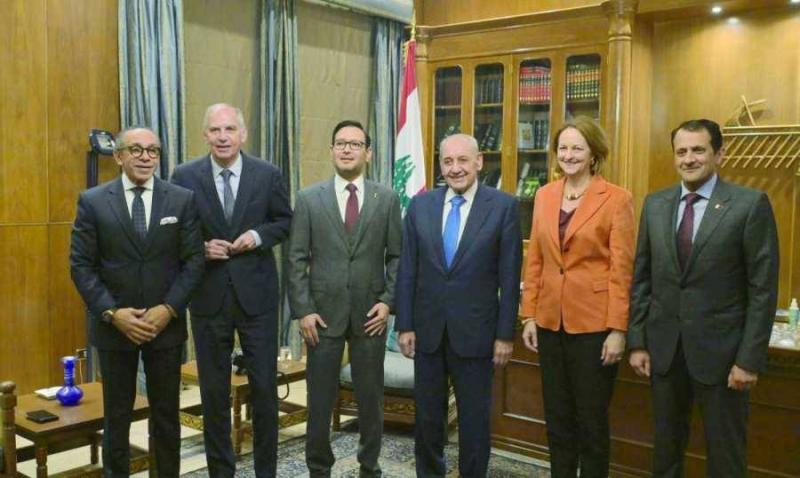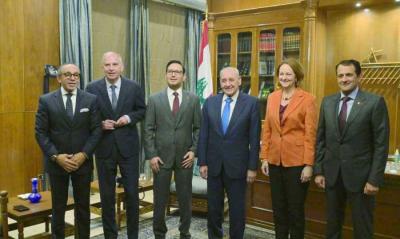Exchange of strikes intensifies between Israel and Hezbollah alongside the rising positive sentiment regarding the potential for a truce in Gaza. However, the calculations on the support front from southern Lebanon differ, with both sides determined to establish a footing for powerful strikes against each other, mostly below the belt from Israel, while Hezbollah insists on fully controlling the situation and regulating the dynamics of the front according to its own agenda. The recent bombardment of an Israeli military base near Lake Tiberias, 60 kilometers deep within Israeli territory, serves as a repeated reminder that Hezbollah is capable of targeting any military or vital Israeli facility on land and sea (including natural gas production platforms) and in the air, consistently revealing ground-to-air missiles in its possession, without confirming their manufacturer.
Hezbollah challenges Israel, asserting its readiness for a prolonged war that cannot be endured by the Israeli state, which is already struggling to cope with the repercussions of Operation Al-Aqsa Flood, despite conducting an unrelenting war on the Gaza Strip since October 7. However, the Lebanese front's support from Hezbollah has disrupted Israeli military calculations, given the significant military disparity between Hamas and Hezbollah, which possesses different capabilities and unlimited reinforcements in personnel and equipment.
At the same time, there is an exchange of positions from both sides along the Lebanese-Israeli border. Israeli Defense Minister Yoav Galant has returned to a threatening tone after moving away from it following his recent visit to the United States, while Hezbollah's Secretary-General, Hassan Nasrallah, stated that the situation remains open to all possibilities. An informed source told Al-Anbaa, "The escalation in positions and military operations serves as messages accompanying negotiations that are expected to yield positive results regarding an agreement to halt battles in Gaza, paving the way for the exchange of captives."
In this context, every party is trying to improve its negotiating position ahead of the return of U.S. envoy Amos Hochstein. Galant visited the northern border with Lebanon and stated: "If we reach a settlement that includes the return of the captives, this does not bind us to a ceasefire with Hezbollah," which, in turn, has provided an ambiguous stance regarding its decision after the Gaza agreement. Galant added, "If a ceasefire is not finalized, matters remain open to all possibilities."
Amid the escalation from both conflict parties in the south and the negotiations for a phased ceasefire in Gaza, the open confrontation in the field continues. Parliament Speaker Nabih Berri remains optimistic about reaching a solution as soon as the battles in Gaza end. In this respect, he confirmed that Hochstein, who is touring Europe, would head immediately to Lebanon upon reaching a ceasefire in Gaza to continue negotiations that had progressed between him and the Speaker, though some fear that these negotiations could occur under the pressure of battles with the aim of improving gains and imposing solutions.
Furthermore, the sources view all these positions as exerting pressure on the negotiations. They believe that an atmosphere of consensus remains the most likely outcome due to the international pressure to succeed in the negotiations, despite attempts to procrastinate from Netanyahu's government to buy time until his visit to the United States later this month, prompting many countries to conduct communications to expedite the agreement and calm.
Alongside the open confrontation on the southern front and international contacts for cooling in Gaza, the Lebanese political scene remains in anticipation, especially regarding the presidential challenge that has been unable to be completed since October 31, 2022. It seems the actions of ambassadors from the quintet group for Lebanon (the United States, France, Qatar, Egypt, and Saudi Arabia) are moving in rhythm with what is conveyed to them from mediator countries, where negotiations are ongoing concerning the ceasefire in Gaza. The same applies at the headquarters of the Lebanese Parliament in Ain El-Tineh, where President Berri has slowed down preparations to call for dialogue or consultations that he insists on before convening a new session for the presidential elections following the last session on June 14, 2023. Berri insists on a comprehensive attendance for dialogue or consultation, rather than settling for the presence of two-thirds of the parliamentary components (86 deputies) in light of the public boycott by the Lebanese Forces party, which deals with the issue with total rejection and its position has transformed into one that is not read according to Al-Anbaa.




